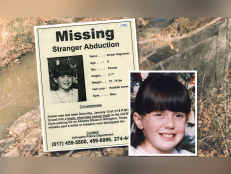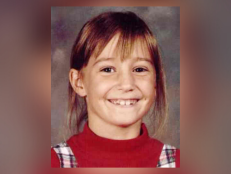How Police Actually Benefited From Not Solving JonBenét Ramsey’s Baffling 1996 Murder
The beauty pageant princess’ death over Christmas helped lead to Boulder County’s former district attorney cracking over 20 cold cases.
![31890201rams_20010627_19399.jpg People light candles at the murder site of six-year-old JonBenèt Ramsey in Boulder, Colorado, December 1997 [Karl Gehring/Liaison via Getty Images]](http://investigationdiscovery.sndimg.com/content/dam/images/investigationdiscovery/crimefeed/legacy/2018/12/Getty_JonBenet-shrine-748856.jpg.rend.hgtvcom.616.411.suffix/1545660936245.jpeg)
Karl Gehring
People light candles at the murder site of six-year-old JonBenèt Ramsey in Boulder, Colorado, December 1997 [Karl Gehring/Liaison via Getty Images]
BOULDER COUNTY, CO — JonBenét Ramsey was found strangled to death in her family’s home the day after Christmas in 1996, and investigators have been trying to solve the six-year-old beauty pageant princess’ mysterious murder ever since.
While the troubling case has created more questions than answers through the years, it’s also transformed the way crimes are investigated in the area.
“The evidence in the Ramsey case is extremely confusing, extremely compromised,” former Boulder County District Attorney Stan Garnett, who returned to private practice in early 2018, has said.
“It’s been a fundamental problem with that case from the very beginning, from the crime scene to an unlimited number of mistakes made in that case by the police, by the prosecution, by all kinds of folks,” he added.
Surprisingly, however, there is a silver lining to the fact the investigation was horribly bungled from the start. Garnett told GetBoulder.com that he studied the problems in the Ramsey case before beginning his nine-year stint as DA in 2009, and he learned “four basic lessons” from Ramsey’s murder.
“The first one is have good relations with your police. Listen to them. Work with them. Have vigorous but strong relationships with them,” said Garnett, who noted investigators created “problems with the case from the start.”
For example, after Ramsey’s mom, Patsy, called to report her daughter missing, authorities failed to do a proper search of the house, and the little girl’s body wasn’t found for around eight hours.
Potential crime scene evidence was compromised when her dad, John, was permitted to move the little girl’s body from the home’s basement. And during questioning, the Ramseys weren’t separated in order to ferret out any inconsistencies in their stories.
“Number two: Have grand-jury capacity,” said Garnett. “You have to have people in your office who are able to do good grand-jury work. One of the many problems with Ramsey was that they waited almost two years to take the case to the grand jury.”
And when the grand jury recommended indicting John and Patsy, who always vehemently denied accusations they killed their daughter, the DA at the time eventually exonerated the parents.
“As I’ve said from the very beginning, the definitive issue with the JonBenét case is, what does the evidence show? I disagreed with exoneration [of her parents, John and Patsy Ramsey] because I did not think it was the appropriate role of the [then-] district attorney to issue an exoneration in a case like that,” said Garnett.
The third lesson learned, Garnett continued, “is to have excellent, excellent lawyers on staff, the best lawyers that you can get.”
And his final lesson from the Ramsey case “is make sure that you have appropriate support from prosecution at the crime scene of a case," he added.
For ex–D.A. Garnett, that meant developing a rapid-response on-call system. Now, whenever a major crime occurs in Boulder County, a deputy arrives at the scene within minutes — “not to do the investigation, because our job is not to do the investigation,” he said, “but to help the police make sure that they do a great investigation and they have appropriate legal backup.”
After Garnett enacted his sweeping changes based on the lessons learned from the “frustrating” Ramsey case, investigators went on to solve more than 20 cold cases during his nine-year tenure.
Despite the Boulder police’s increased success with solving cold cases and crime, Garnett has said he doesn’t think the Ramsey murder will ever be resolved.
"My expectation is that charges will never be filed in the Ramsey case," he told Daily Camera. "The combination of some problems at the crime scene and early in the investigation, in my mind, are impossible to overcome.”
Read more: News.com.au, Daily Camera, GetBoulder.com
![Relisha's photo is shown age-progressed to 14 years. She was last seen on March 19, 2014. [via National Center for Missing & Exploited Children]](http://investigationdiscovery.sndimg.com/content/dam/images/investigationdiscovery/crimefeed/legacy/2021/05/relisha-rudd-missing-ncmec-052121.png.rend.hgtvcom.231.174.suffix/1621619534494.png)






![Riley Whitelaw [main] was allegedly murdered by her coworker Joshua Johnson [inset] after rejecting his unwanted advances.](http://investigationdiscovery.sndimg.com/content/dam/images/investigationdiscovery/crimefeed/legacy/2022/06/gazette-obituary-riley-whitelaw-colorado-springs-police-department-joshua-johnson-06212022.png.rend.hgtvcom.231.174.suffix/1655827255331.png)

